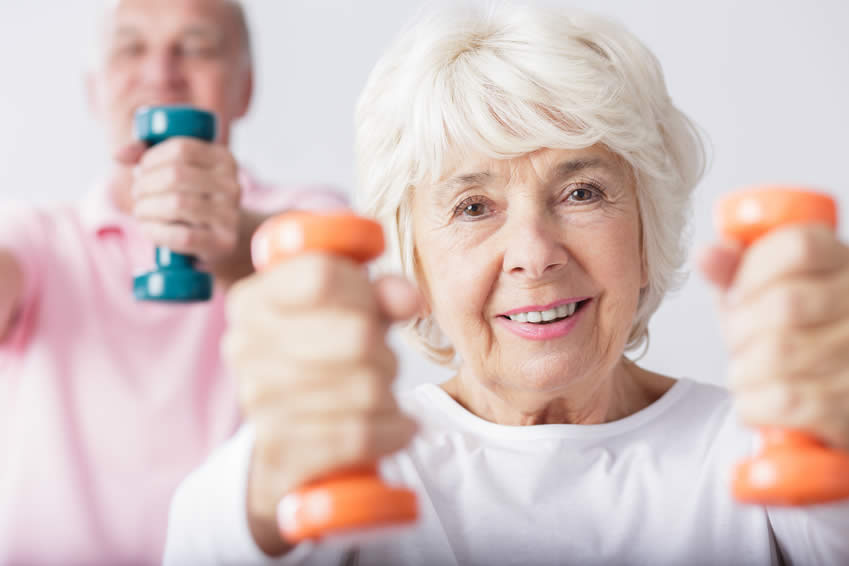
 27th Feb 2018
27th Feb 2018
 Community
Community
 By Ashley Shepherd
By Ashley Shepherd
For all the myths and old wives’ tales, there is no elixir of life to keep you forever young. But bookshelves and the internet these days are awash with practical ways on how to stay healthy for longer – and the older you get, staying healthy becomes ever more a priority.
A wide choice of competitively priced private health insurance plans may help to keep you in good shape and ahead of the inevitable waiting lists of the NHS. Even more affordable health cash plans might give you the means to keep up with regular check-ups on everything from visits to the dentist or optician, the chiropractor or podiatrist.
But there is still much more you may do to help yourself beat some of the effects of ageing through ongoing and straightforward steps towards healthy living. It is worth taking a closer look at what these might involve.
No time for taking it easy
One mindset definitely to avoid, warned the Telegraph newspaper, reporting research by the British Medical Journal (BMJ), on the 17th of October 2017, is that getting older is the time to start taking everything easy.
Activity in all its forms – both physical and mental – says the BMJ, is likely to be a key to healthy living and may be one of the keys to combatting the onset of dementia and even Alzheimer’s Disease, which currently costs the country’s health services an estimated £26 billion a year.
It’s never too late to start
And even if you have always led a sedentary life, it’s never too late to start. In fact, a recent study from Oslo University Hospital found that getting fit in middle age halves the risk of stroke. The same study showed that no difference was found between people who had always been fit and those who decided to become active in later life.
Physical and mental wellbeing
A wide range of activities may promote physical and mental wellbeing, not only when we are young, but also as we get older.
According to the NHS, for example, those who are over the age of 65 and interested in how to stay healthy should consider taking two distinct types of physical activity – aerobic and strength exercises:
Aerobic exercise
- regular aerobic exercise – for about two hours a week – might include activities such as walking, cycling or playing tennis; and
Strength exercises
- are those which exercise the major muscle groups, such as your legs, arms, shoulders, back, hips, chest and abdomen;
- strengthened muscles are essential for maintaining your general mobility, building strong bones, regulating your blood pressure and blood sugar levels, and sticking to a healthy weight;
- everyday examples of such muscle-strengthening exercises include moving moderately heavy loads (like carrying home your shopping), exercises involving stepping and jumping (such as dancing), gardening (especially when shovelling or digging is involved), push-ups, sit-ups and weight lifting, and yoga.
Avoiding falls
Staying active is part of any healthy living regime and may also help you keep steady on your feet.
Maintaining your balance may prove more difficult as you grow older and your general state of health changes. So, it becomes more important to have regular check-ups for potential problems to be identified before you take a tumble and fall.
Failing vision may also affect your balance, so make sure to have regular check-ups up at the opticians – the incidence of problems such as glaucoma, cataracts and macular degeneration increases with age.
Problems with your ears may also result in a loss of balance at critical moments, so make sure to have your hearing checked regularly and report any issues or loss of hearing to your GP as soon as possible.
Eating healthily
Healthy living is also down to how you eat – doing so helps you to stay active and free of illnesses, so is all part of the cycle of how to stay healthy.
It doesn’t mean you have to diet or forego your favourite treats – although you might need to eat them in moderation and take your meals in smaller portions.
Tips and suggestions on affordable eating that makes the most of health-giving foods, whilst cutting back on those you should avoid, may be found on the website of the charity Age UK.
Mental health
Loneliness in old age affects your emotional, mental and physical health. In fact, the harmful physical effects of social isolation have been likened to smoking 15 cigarettes a day, said the Campaign to end Loneliness in 2018.
Yet more than half of the population of over-75s live alone, 17% of older people see friends, family or neighbours less than once a week and 11% of them enjoy that social interaction less than once a month.
Staying healthy into older age has a lot to do with maintaining your social contacts, therefore – whether this is through visits by others to your home or your outings to places such as social clubs and day centres where you can meet and make friends. So much the better if these are places where you are also able to exercise your mind – by playing card or board games, taking arts and crafts courses, or even learning a new language.